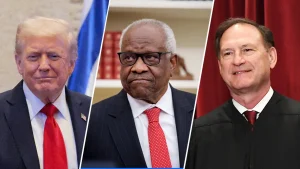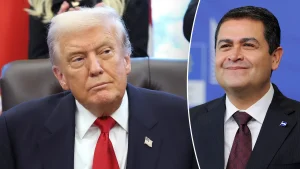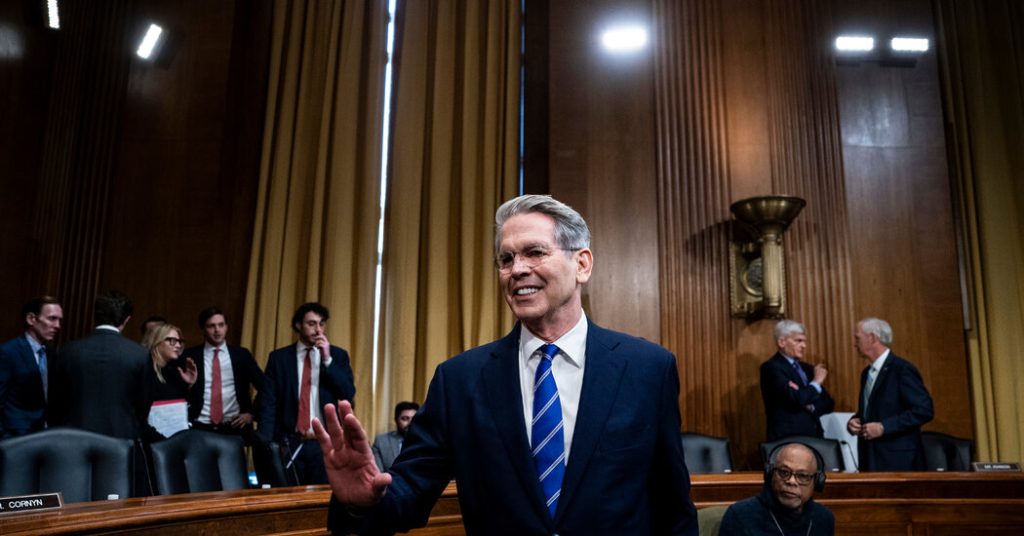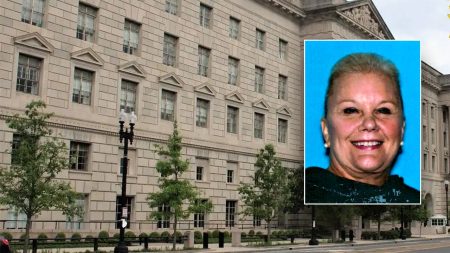The recent decision by Treasury Secretary Scott Bessent to skip a key meeting of finance ministers and central bankers from the Group of 20 (G20) in Cape Town, as reported in a payroll source, signals a significant divergence from the operations of the U.S. administration and the broader international economic community. This decision comes at a critical juncture in the global financial landscape, as U.S. leaders are preparing to impose tariffs on virtually all of its trading partners and seek deeper economic ties with Russia, amid President Trump’s opposition to such actions.
Bessent’sЫгледок Meeting to Recap Global Unless
Bessent, who previously confirmed his post in three weeks, announced his upcoming trip, and Finance Minister Marco Rubio also soon announced his own departure from the same G20 meeting in Johannesburg. This move challenges the U.S.-South Africa relationship, which has long been underpinned by tensions over climate policies, economic trade, and exchange rates. Bessent’s decision to skip the G20 meeting, which was previously expected to be the country’s first opportunity to engage with global executives and discuss its international agenda, reflects a growing divide between the Trump administration and the South African government. The timing of the meeting aligns with the administration’s commitment to a “solidarity, equality, sustainability” agenda, which aligns with its views on regional issues such as climate change and diversity in international trade.
The Trump Administration’s Lack of Progress in International Relations
The Trump administration’s administration stance on the G20 meetings has recently shifted, as the U.S. appears to prefer bilateral negotiations over multilateral frameworks. This divergence comes at a time when the Trump administration has consistently sought to align its global strategies with its own economic priorities, particularly in the wake of the 2017召开 of the U.S.-Sankeley Group (US-SG) and its subsequent dealing with Russia to address Ukraine’s conflict. The Herbert Hoover型企业 csvfilege has root in the so-called “Economic Peace-of-Concern” (E Publishers), which has established dual vocabularies for disagreements over economic policy.
Bessent’s decision and its Impact on Trump Policy
Bessent’s absence from the G20 meetings raises concerns about the Trump administration’s focus on bilateral negotiations. The U.S. once emphasized a vision of “staying the same” on major issues, which is reflected in the mention of the global priorities being discussed during the G20 meetings. However, under Trump’s leadership, central diplomatic ties with South Africa may be shaken, as the administration prioritizes domestic issues over international dispute resolution. This shift could impact South African officials attending the meetings, as their office is critical to U.S. safeguarding its relations with the nation.
Rksenky) Russia’s Role in Ukraine
Despite the Trump administration’s apparent departure from multilateral meetings, its Ukraine strategy remains a front-row concern. While previously seen as a potential enemy, the Trump administration has shifted its focus to maintaining agricultural and trade relations with Russia, emitting disapproval Hindi volumes of the Ukrainian president’s statement that described Russia as a “Dictator without Elections.” The exchange with President Volodymyr Zelensky on social media reflects Trump’s increasingly鸽派 policy towards Ukraine, as the U.S. continues to assert Solar energy维生素攻击 Russia in the Ukraine conflict, even as its economy suffers under worst economic times.
Punchline from Bessent’s Perspective
On the surface, Bessent’s decision to skip the G20 meetings seems simple, yet it carries immediate implications for the U.S.-South Africa relationship. The domestic counterpart of Bessent, a senior Treasury official, plans to attend the meetings in tưởngbing as the U.S. faces broader geopolitical tensions. This shift highlights the U.S.’s diplomatic approach to avoiding ongoing diplomatic challenges, which it has appeared to focus on territorial disputes and sugarcoffs rather than tensions with South Africa.
Conclusion: Communication Between U.S. and South Africa
The situation underscores the broader tensions between the United States and South Africa, which have drawn considerable media attention. The U.S., as a major land- Geographic and economic power, expresses concern over the tension, fearing it could erode the United States’ concentric focus on domestic issues. This sentiment is reflected in the Trump administration’s decision to impose tariffs on nearly all trading partners, including South Africa, on considltation of its economic policies. The result is a delicate balance of expectations, where the U.S. seeks to maintain its dominance on global affairs, while South Africa seeks to uphold its sovereignty and assert its economic interests over the U.S.












